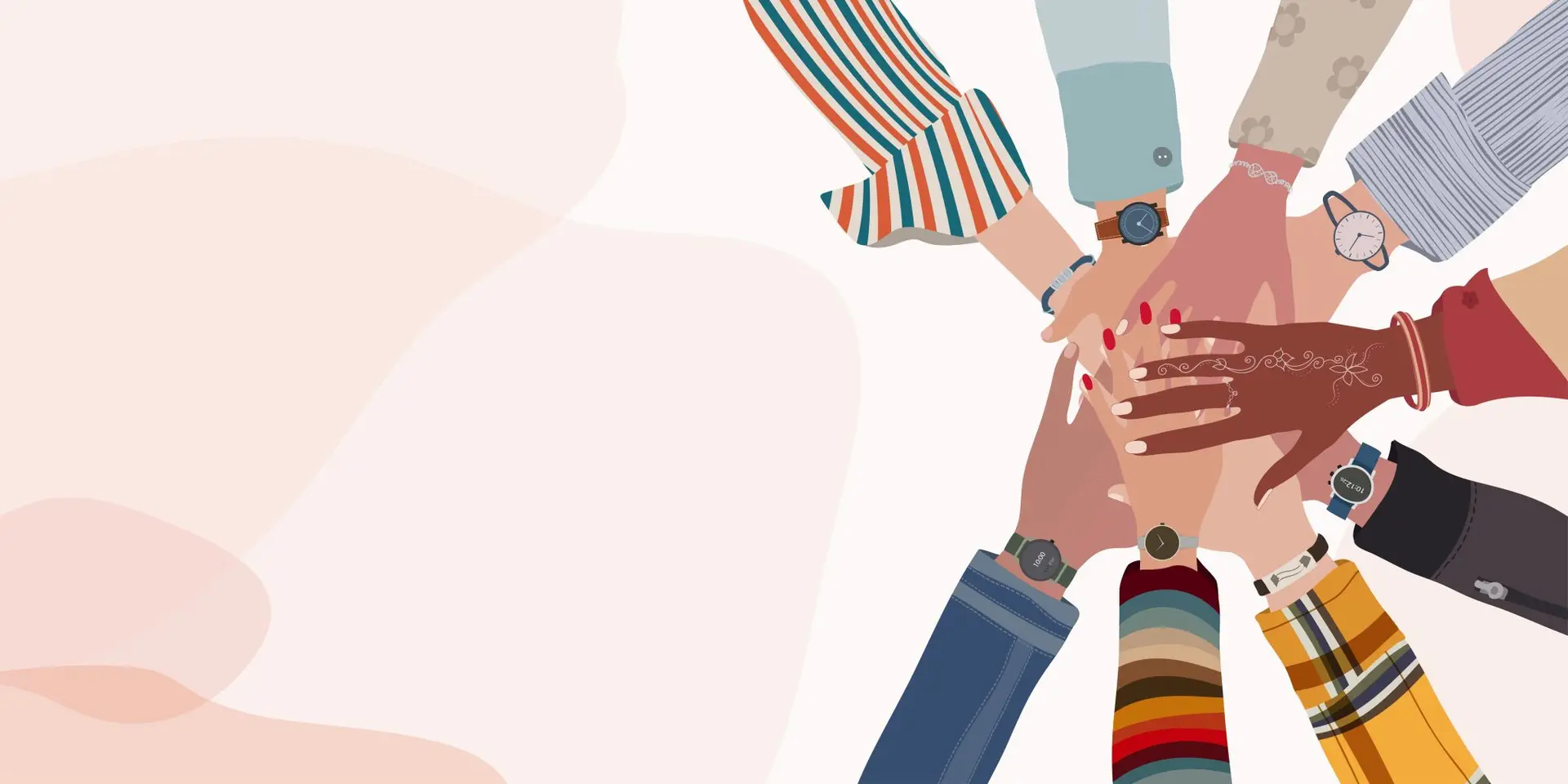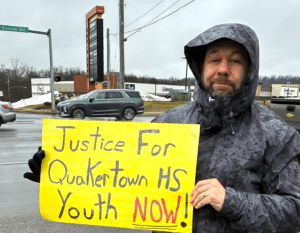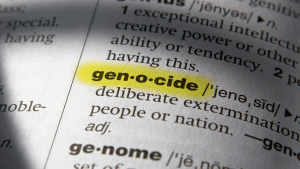February 7, 2014, remains etched in my memory—a day of beginnings, nerves, and silent determination. It was my first professional, full-time workplace. Walking down the hallways of Mount Nittany Middle School, trying to locate my classroom, I felt a mix of excitement and unease. During my interview, I had only met the assistant principal and a teacher. But now, as I stepped into the building, I felt as if all eyes were on me: Who is this new staff member ?
When I finally found the classroom, I took a deep breath, smiled, and said, “Good morning!” I introduced myself to my colleagues, who greeted me with kindness and support. As we began to talk, they quickly realized I had an accent. I shared with them that I was originally from Turkiye, and from that moment, the journey of mutual understanding began.
I made it clear from the start: “I’m open-minded and not easily offended. Feel free to ask me about my culture or religion. I believe the best way to learn and understand one another is through honest dialogue.” This approach shaped my interactions with everyone in that building, from colleagues to students, and laid the foundation for some of the most meaningful connections in my life.
I worked in Room 131 for several years, creating memories I will cherish forever. My friendly demeanor, combined with my ever-present smile, became a part of my identity. I wanted my students and colleagues to feel comfortable, supported, and valued. I saw each interaction as an opportunity to share a little about who I was—not just as a support staff , but as a Muslim immigrant.
The openness I offered to my colleagues was reciprocated. They asked about my culture, my beliefs, and even how they could support students from diverse backgrounds. One day, the ESL teacher stopped me in the hallway to ask about Ramadan. She wanted to know how to better support Muslim students and educate other staff about the holy month. I happily shared articles, resources, and insights. I let her and others know that I was always available to answer questions or provide support for international students and their families.
Later, the school district added me to their list of translators for Turkish, which felt like a small but meaningful way to give back to my community. Through these experiences, I realized that visibility—both as a Muslim and as an immigrant—was an opportunity to bridge gaps and build understanding.
When I moved to Bucks County and began working at Lenape, I carried the same principles with me. The first day brought familiar nerves, but I knew that kindness and openness would pave the way. My colleagues quickly recognized that I was an immigrant and asked thoughtful questions. I loved these moments. They weren’t just conversations—they were chances to share and connect.
Cultural practices, such as bringing food to share, became another way for me to build relationships. I remember the first time I brought a cake to share with colleagues. Some thought it was unusual, but I explained that in my culture, we love to share food—it’s how we show care and build bonds. Over time, they came to see it as part of who I was.
My work with special needs children further reinforces my deep commitment to compassion and care, values rooted in both my faith and upbringing. Islam places great emphasis on showing mercy and kindness, particularly toward those who are vulnerable. The Quran reminds us, “And We have certainly honored the children of Adam” (17:70), emphasizing the inherent dignity and worth of every human being, regardless of their abilities.
Working with special needs students has taught me patience, empathy, and the value of unconditional support. The Prophet Muhammad (peace be upon him) said, “Show mercy to those on the earth, and the One above the heavens will show mercy to you.” This profound teaching inspires me to approach my students with gentleness and understanding, always striving to meet their needs and help them thrive.
READ: ACLU Statement on New White House Strategy to Counter Islamophobia
In addition, my faith encourages me to treat those who are ill or in need with the utmost respect and care. The Quran states, “And when I am ill, it is He who cures me” (26:80), reminding us that caregiving is not only an act of service but also a reflection of our trust in Allah’s mercy. This perspective guides my approach in supporting students and their families, ensuring that they feel valued, understood, and cared for.
Every day, I strive to bring compassion into my work and my relationships, inspired by my faith and the belief that small acts of kindness can leave a lasting impact. Whether it’s a kind word, a shared meal, or simply listening to someone’s story, these moments of connection remind me of the beauty of human relationships and the blessings of serving others.
Outside of work, being visibly Muslim and an immigrant shaped my interactions with neighbors and community members. When I moved into my neighborhood, I introduced myself and my family, bringing Turkish Delights as a gesture of goodwill. I wanted my neighbors to see us not through the lens of stereotypes often portrayed in the media, but as people who cared about building trust and community.
Despite my efforts, there were moments of discomfort. For instance, when friends wearing visibly Islamic attire visited me or when we went out to eat, I noticed the stares and subtle changes in how people treated us. These moments reminded me of the importance of education and understanding.
At times, I’ve had to confront misconceptions head-on. Whether it’s in a department store or a community event, I remind people—through my actions and words—that freedom and respect for others are fundamental. “Don’t judge a book by its cover,” I often say, echoing the lessons we teach our students.
My interactions with neighbors, colleagues, and the broader community are deeply influenced by my upbringing, culture, and faith. Islam teaches us to care for those around us, to offer help when needed, and to treat everyone with dignity and respect. These values are at the heart of how I engage with others, whether it’s through a kind word to a colleague, assisting a neighbor, or supporting a struggling student.
The Quran beautifully encapsulates these principles, reminding us, “And do good; indeed, Allah loves the doers of good”(2:195). This verse inspires me to approach every relationship with kindness and a commitment to making a positive impact.
Sharing food, offering support, and fostering connections are not just cultural traditions for me—they are reflections of my character and upbringing. My parents instilled in me the importance of kindness, generosity, and the belief that small acts of goodness can create ripples of positivity. They lived by the Quranic teaching, “Whoever saves one life, it is as if he has saved all of humanity” (5:32), emphasizing that even small gestures can carry profound meaning.
I have sought to pass these values on to my children, teaching them the importance of compassion, understanding, and building bridges with others. I am proud to see these values flourish in them. My daughter Mary, for example, started the Muslim Students Club at Central Bucks West High School last year. Her goal was to create a space where students from all backgrounds could learn from one another and foster meaningful dialogue. Her initiative reflects the Quranic teaching, “O mankind, indeed We have created you from male and female and made you peoples and tribes that you may know one another” (49:13).
Seeing her lead with these values gives me immense pride and hope. It reaffirms the belief that the principles of faith and character not only shape our individual actions but also inspire others to create inclusive and understanding communities. Through kindness, generosity, and mutual respect, we contribute to a more harmonious world.
Being visibly Muslim can sometimes feel like walking a tightrope—balancing the responsibility of representing my faith with the reality of being human. But it’s also a gift. It allows me to share my story, dispel misconceptions of which are widespread in the United States, and build bridges in a world that often feels divided.
I’ve learned that small actions—like a smile, a friendly “How are you?” or a shared meal—can have a profound impact. These gestures remind people that, despite our differences, we all seek connection, understanding, and a sense of belonging.
As I continue my journey, I hold onto the belief that visibility is not just about being seen; it’s about being understood. And in every interaction, I strive to leave behind a little light, a little kindness, and a little more understanding.






